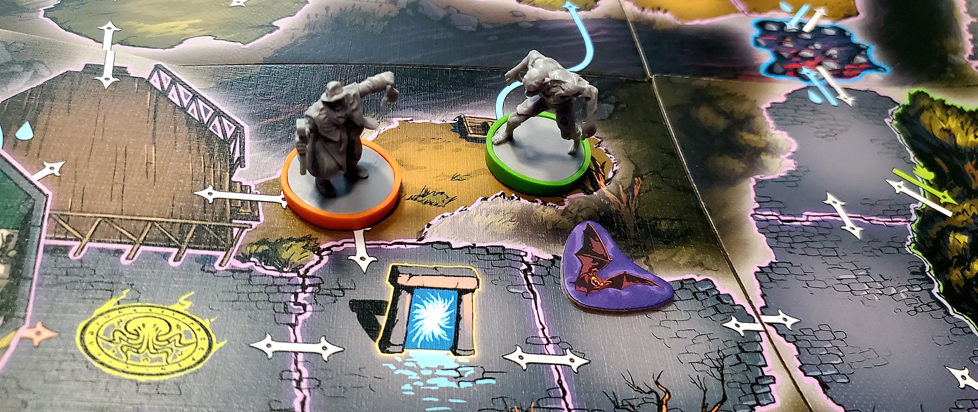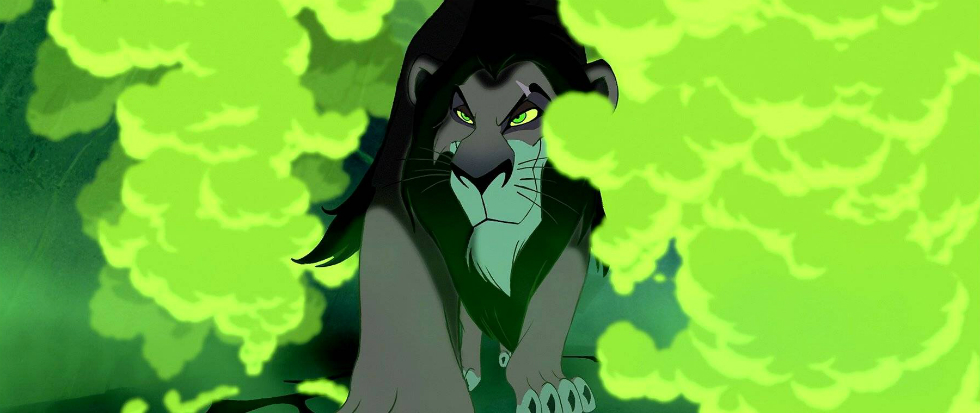
Candles Against the Dark: Surviving the Night (and Each Other) in Deranged
I see board games in the store and they always look so cool and then I buy them and bring them home, I’m so excited to open them, and then I play them, like, twice… This column is dedicated to the love of games for those of us whose eyes may be bigger than our stomachs when it comes to playing, and the joy that we can all take from games, even if we don’t play them very often.
Some time back, I wrote about Betrayal at House on the Hill, a game that had a big impact on me. One of that game’s great strengths – and, arguably, one of its great weaknesses – is the traitor mechanic at its heart, which forces one player into the role of villain partway through the game. This, naturally, has repercussions for how the game is played before the reveal of who is the traitor, but since you never know which character it’s going to be, or what form the “haunting” will take, those ramifications are relatively minor.
Of greater impact is the simple fact that this mechanic means that one player will eventually be separated from the rest of the table – pitted against them, in point of fact. In the original game, this went so far as to have the traitor leave the room at the time the haunt was revealed, reading their own rules in a closet somewhere while the rest of the group figured theirs out in tandem, taking what had been, up ‘til that point, a fully and even necessarily cooperative game and suddenly pitting one player against the others on an uneven playing field.
Deranged, from Hobby World and UltraPro, ostensibly takes this mechanic one step further. Like Betrayal, Deranged is a horror-themed game, this time set in the nonspecifically Eastern European town of Wutburg, which the manual describes as a place that feels “both very old but also with little sign of aging.” Each player takes control of a character who has come to Wutburg for their own reasons, and each one wakes up after their first night there to find themselves in a suddenly depopulated and eerily haunted town, covered in blood that is probably not their own.
Rather than a haunting that is triggered partway through, Wutburg is haunted from the jump, plagued by monsters like the risen dead, necromancers, werewolves, and hungry ghosts. And rather than a single player becoming the traitor, each player has the potential to turn on their fellows – and turn back, at least in theory.
The title of Deranged comes from this mechanic. The players win by shedding the curses that the town has placed upon them and escaping Wutburg forever. The darkness of the town has infected them, however, and various conditions might cause any one of them to suddenly transform into dangerous monsters known as Deranged.
A character who is Deranged is normal by day but becomes a monster by night. They can’t leave town (and therefore win the game) until they cure the condition, and the easiest route to a cure is by slaying one of their erstwhile allies. But being Deranged isn’t like being the traitor in House on the Hill. It’s not a one-way street and it doesn’t fundamentally change the way you win the game. That’s where the power of the premise lies, at least in theory.
The idea seems to have been to create a game of paranoia, something plenty of other horror board games have attempted with varying degrees of success. The game seems to want each player to constantly negotiate a balance between what is best for their individual goals and what is best for the group, with the awareness that any of the others might turn on them at any time – or that they, themselves, might become ravening beasts, going for the throats of their friends.
That’s not a logline that’s going to a appeal to everyone, but for a certain type of player, it definitely has potential on paper. The problem is that the mechanics of Deranged don’t actually fully execute this premise. I’d be inclined to chalk this impression up to my limited interactions with the game (see the name of this column, after all), but if you do some cursory digging into online reviews and boardgame forums, you’ll find plenty of others with the same – complaint feels like too strong of a word, so let’s just say “experience.”
When you get right down to it, there’s not much incentive to not keep working together, even when one of your number becomes Deranged. Sure, you can “win” the game by saving yourself and abandoning your allies, but there’s no real benefit to doing so that can’t be just as easily acquired by working together. The game feels like it’s missing an element somewhere – a mechanic whereby who is Deranged and who isn’t is kept secret, and where the “win” condition for Deranged characters changes accordingly.
Even those who get killed by the Deranged come back in short order, making death little more than a minor setback. This isn’t like Betrayal, whose name says it all, where your goals change dramatically once you become the traitor. Here, you all still win by escaping town, and the Deranged have no particular incentive to turn on their compatriots without first working out some sort of mutually-beneficial agreement.
Of course, there’s also nothing stopping you from playing the game as it seems to have been intended. If you want to change into a bloodthirsty monster when the sun goes down and you’ve got a Deranged token, you certainly can. And the game is probably more fun that way. But without the mechanics to more fully support it, it’s basically just roleplaying at that point, and can even feel meanspirited in a game where cooperation is often so key to survival.
Fortunately, Deranged doesn’t really need that core mechanic to sing in order to work as a decent entry in the co-op horror gaming ecosystem. What first drew me to it was the art by Anton Kvasovarov, even before I had received a review copy from UltraPro. It’s cartoony and colorful enough to pop, without losing the gothic horror feel that the game is reaching for – more Hammer horror than Walking Dead and, in a crowded marketplace, all the better for it.
The town of Wutburg is represented by four double-sided tiles that show a colorful map, replete with movement limitations that have significant impacts on gameplay. While most of my experience thus far has been with the game components themselves and the introductory scenario with its hungry ghosts, Deranged offers several additional storylines, which add various twists and more meat to the story of the cursed town.
Perhaps the worst thing I can say about Deranged is that it was good enough that I wanted it to be better. Ultimately, that’s the opposite of damning with faint praise. And if the desperate survival horror mechanic that the game seems to be reaching for requires the players to meet it halfway, well, maybe that isn’t so bad, after all…





